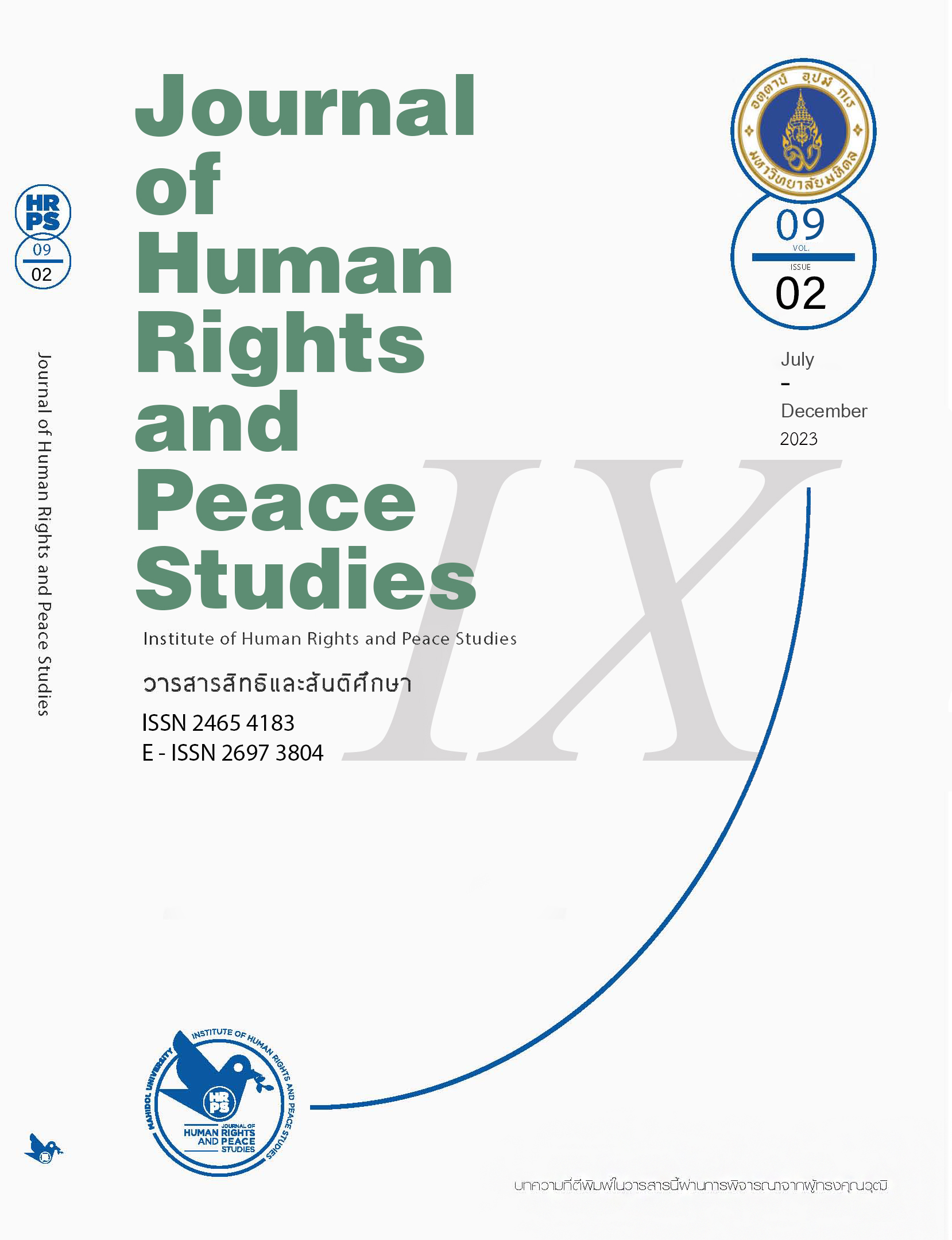Sacred Values, Independence Movements, and Violence
Main Article Content
Abstract
Sacred values are values that a community attaches importance to beyond any price. They are values that cannot be compared or exchanged with worldly values (secular values). Sacred values include life, love, nature, health, justice, dignity, etc. The worldly values are values such as money, comfort, position, etc. Exchanging sacred values for secular values is regarded as forbidden. Suppose conflicting groups have different sacred values, such as the Catalans and the Spaniards, Israelis and Palestinians, the Red Shirts and the Yellow Shirts in Thailand, and the Patani people and the Thai state. In that case, the solution without conflict and the path to peace face great hindrances. A backfire effect can lead to new or renewed violence if not carefully attempted. The reason for the independence movement’s position is mainly about the preservation of sacred values. If violence is the only means by which these sacred values can be preserved, then violence will continue. But if one can find another way to protect sacred values without violence, that approach could be a peaceful solution.
Article Details

This work is licensed under a Creative Commons Attribution-NonCommercial-NoDerivatives 4.0 International License.
The views, opinions, and pictures expressed in this journal are those of the authors and do not necessarily reflect the opinions and viewpoints of the editor and the editorial board. All rights are reserved by the authors and the Institute of Human Rights and Peace Studies of Mahidol University. No part of this journal may be reproduced, stored in a retrieval system, or transmitted in any form or by any means without the prior permission in writing from the journal’s editor, or as expressly permitted by law, or under terms agreed with the appropriate reprographics rights organization. Non-commercial use of information in this journal must be properly referenced.
References
Ginges, Jeremy and Atran, Scott, (2013). “Sacred Values and Cultural Conflict”, in Michele J. Gelfand, Chi-Yue Chiu, Ying-Yi Hong (eds.), Advances in Culture and Psychology, Oxford University Press.
Hamid, Nafis and Pretus, Clara (Artis International) (2017). “How Spain Misunderstood the Catalan Independence Movement”, The Atlantic.
Hanselmann, Martin and Tanner, Carmen, (2008). “Taboos and conflicts in decision making: Sacred values, decision difficulty, and emotions”, Judgment and Decision Making, vol. 3, no.
Righetti, Nicola, (2014). “The Sacred in Current Social Sciences Research”, Italian Sociological Review, 4, 1.
Tetlock, Philip E., (2003). “Thinking the unthinkable: sacred values and taboo cognitions”, TRENDS in Cognitive Sciences, Vol.7, No.7.
Tresserras, Joan M., “Language and Culture”, (2016). Ara.Cat.
Zeelenberg, M., Nelissen, R.M., Brreugelmans, S.M., & Pieters, R., (2008). “On emotion specificity in decision making: why feeling is for doing”, Judgment and Decision Making, Vol.3.


